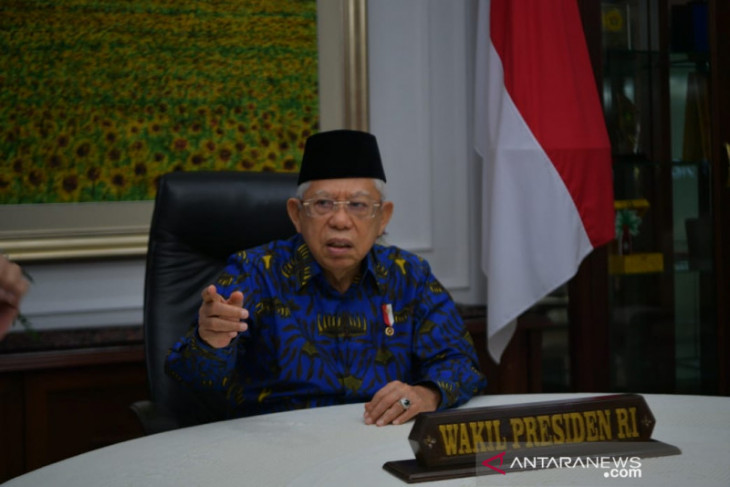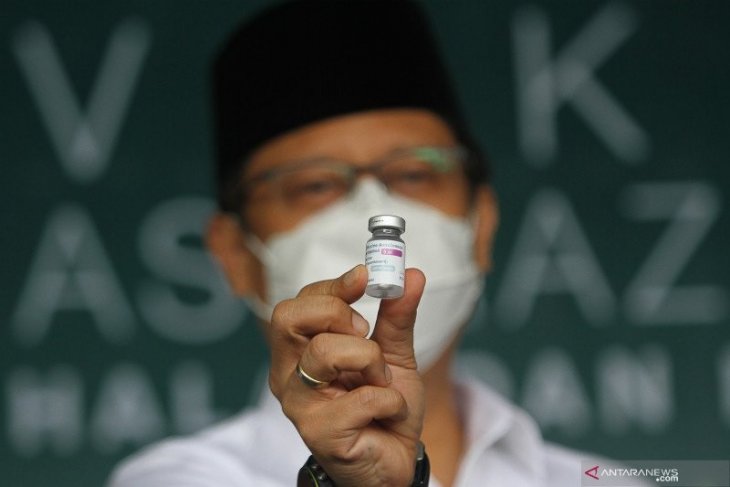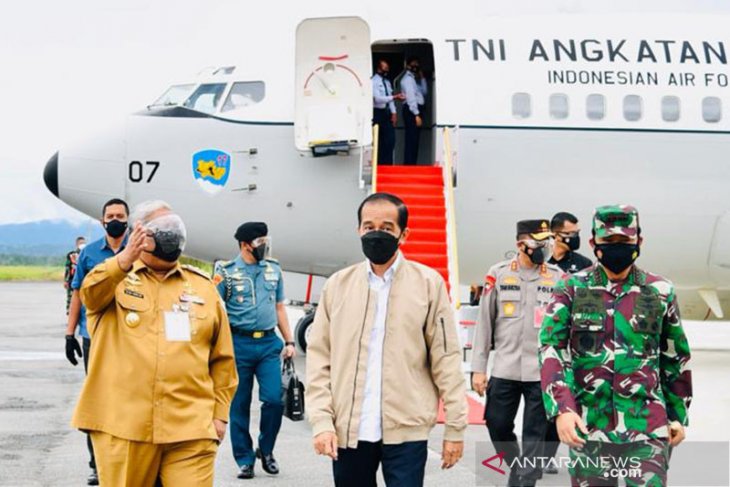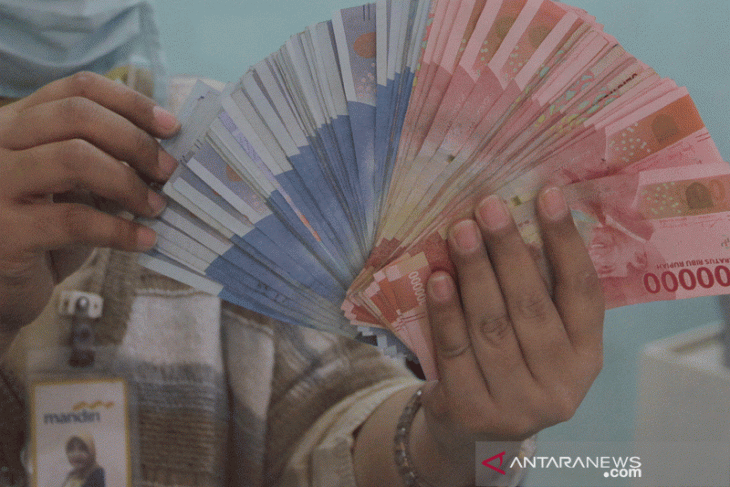Live Streaming
Program Highlight
Company Profile

Program Highlight (3017)

PLN Gradually Recovers Electricity Supply (0)
State-owned electricity firm PT PLN has recovered electric power to Balaraja Extra High Voltage substation in Banten Province, and furthermore it will be channeled to Suralaya steam-fueled power plant (PLTU) to gradually recover its operation to reach its capacity of 2800 MW of electricity.
In addition, power supply from Gandul Extra High Voltage substations in Depok, West Java Province, will be channeled to Muara Karang gas and steam power plant (PLTGU) to supply electricity to the Indonesian capital city, Jakarta.
Acting President Director of PLN Sripeni Inten Cahyani said here on Sunday that the power supply to Jakarta was expected to recover within three hours.
"We apologize for the inconvenience today, and currently all efforts have been made to recover the Java-Bali power system, especially in the area of West Java, Banten, and Jakarta," Cahyani said.
The company has focused on power supply to PLTGU Muara Karang and PLTGU Priok to recover the system in the capital city.
Previously, PLN has recovered the operation of hydro-generated power plant (PLTA) Saguling and PLTA Cirata which are functioned as power stabilizer, and, at the same time, supply the electricity to PLTU Suralaya through Cibinong, Depok, Gandul, Lengkok, Balaraja and Suralaya extra high voltage substations.
PLTU Suralaya is expected to return to its normal operation within six hours to normalize power system in West Java and Banten.
Blackout that affected thousands of homes and public facilities in West Java, Jakarta, and Banten was caused by several troubles in the extra high voltage 500 kV transmission of Ungaran - Pemalang.
"PLN has taken its best efforts and will have evaluation to prevent recurrence of today's incident," Cahyani said.
more news
July
Amin: Sharia Economic Potential To Be Driving Force Of Economic Growth
Written by Nur Yasmin
Indonesia's Vice President Ma'ruf Amin is upbeat that the sharia (Islamic) economy and finance could be a driving force of the national economic growth, especially attributed to human resources potential.
"As a Muslim majority nation, it is appropriate that the sharia economic and finance become the driving force of the national economy. Indonesia has a great potential in its development," Ami said in his keynote speech at an online seminar entitled "Awaiting the Awakening of the Sharia Economic" here on Sunday.
For supply, Indonesia has various resources as capital for the sharia economic development.
The Vice President also said that Indonesia is a potential market in the sharia economic and finance field.
"We are a potential market for the sharia economic, including in the sectors of finance, halal food and products, Muslim fashion, Islamic social funds, sharia business, and so on," he remarked.
By optimizing those various resources and capabilities, Indonesia can achieve the target of becoming the largest halal producer in the world as a number of non-Muslim countries have also penetrated the sharia market.
"We have to admit that we are still lagging behind in this regard, not only from Muslim majority countries but also from non-Muslim countries such as Thailand and Brazil in exporting halal products, as well as the UK which is more advanced in developing Islamic finance," he noted.
Therefore, four focuses of the Islamic economic and financial development that are currently being carried out by the Government must be able to accelerate the role and contribution of the Islamic economy in the national economy, according to him.
The four focuses are the development of the halal product industry, the development of the sharia finance industry, the development of sharia social funds and the development and expansion of sharia business activities. (Antaranews)
July
Indonesia, France bolster green and blue economy cooperation
Written by nuke
Indonesian Minister of National Development Planning (PPN)/Head of National Development Planning Agency (Bappenas) Suharso Monoarfa while receiving a bilateral visit at the Indonesian Embassy in Paris, France. ANTARA/HO-National Development Planning -
Indonesian National Development Planning Minister Suharso Monoarfa pressed for deepening cooperation between Indonesia and France to create a low-carbon environment, green and blue economy, as well as cooperation in financing the development of government projects.
Monoarfa, concurrently the National Development Planning Agency (Bappenas) head, made the statement while receiving senior officials from The Agence Française de Développement (AFD) and senior officials from the Ministry of Economy and Finance (French Treasury) at the Indonesian Embassy in Paris, France.
"The Ministry of National Development Planning/Bappenas has prepared an economic transformation strategy. The AFD collaboration with the ministry is an effort to implement Indonesia's economic transformation strategy, particularly to create a green economy," Minister Monoarfa noted in his official statement here on Saturday.
During the meeting, the minister affirmed that both parties had concurred on intensifying cooperation in realizing a low-carbon environment or green economy, with the focus on energy transition, waste management, and green industry, including green tourism. Waste-to-energy projects are some potential projects that can be developed. Meanwhile, the AFD will also fully support Indonesia's steps in implementing the pilot project that plans to transform Bali into a blue island.
"The Ministry of National Development Planning/Bappenas will facilitate potential projects that can be financed with AFD loans, such as the eco-fishing port and mass transit program, particularly in Bandung and Medan," the minister noted.
On the occasion, the AFD stated that through closer cooperation with Indonesia, coupled with other cooperation projects and in order to boost operational flexibility, operations of the AFD representative office in Indonesia in future will operate as a separate institution from the French Embassy in the country.
Meanwhile, the French Treasury also stated that in recent years, the French Treasury loans were distributed to finance the construction of television transmitters and the Meteorological System in Indonesia.
Meanwhile, the Indonesian government is also still considering funds from the French government for several government projects on account of the cooperation between both nations in financing development through the French Treasury financing facility that has existed since long.
"Several Indonesian government projects that can be potentially financed by the French Treasury are the National Data Center and the digitalization of broadcasting system. The National Data Center project will be implemented in the near future," Minister Monoarfa stated.
The minister pushed for more competitive financing from the French government for its Indonesian counterpart’s projects as compared to other sources of financing. He is also sanguine that the French government would help with technical readiness and capacity building for recipients.
In the meantime, the French government has positively welcomed the cooperation plan, especially pertaining to the use of French Information and Communication Technology, such as satellites and radar. The French government also offers technical assistance in the preparation of the project using technology from the country.
Regarding the financing scheme, the French Treasury will negotiate with the banking syndicate, so that the financing can be implemented more competitively//ANT
July
Consumer protection safeguards economic recovery: senior minister
Written by nuke
Coordinating Minister for Economic Affairs, Airlangga Hartarto. (ANTARA/HO-Kemenko Perekonomian) -
Coordinating Minister for Economic Affairs Airlangga Hartarto has said that consumer protection plays an important role in national economic growth.
“Public consumption contributes 57 percent to the gross domestic product (GDP). Indonesia's population is also very large, which means that the largest market potential in ASEAN (it) is important to maintain public trust and purchasing power," he said in a statement issued on Friday.
Consumer protection would build public trust in transactions, which would have an effect on increasing consumption, including in the form of controlling the COVID-19 pandemic, he added.
In terms of economic recovery, Hartarto said, government consumption has encouraged an improvement in household consumption and investment. The improvement in domestic demand has led to an increase in production activity in the business sector, he added.
“Indicators of economic recovery have continued in May (2021) and the consumer confidence index has continued to rise to an optimistic level of 104.4, the retail sales index has experienced a positive growth of 12.9 percent (yoy), bringing the manufacturing Purchasing Managers’ Index (PMI) to its highest level of 55.3," he noted.
Furthermore, consumer protection institutions have played a central role in ensuring the fulfillment of consumer rights during the pandemic and the government has had a role in protecting consumers and encouraging goods and service business actors to provide quality, quantity, and security guarantees for goods and or services, the minister said.
"The government will continue to ensure the availability of complaint channels, complaint handling, and consumer dispute resolution," Hartarto assured.
Meanwhile, Chairman of the National Consumer Protection Agency (BPKN) Rizal E Halim has said the agency has so far provided suggestions and considerations to ministries/agencies as well as reports to President Joko Widodo.
From 2005 to 2021, the BPKN has provided 212 recommendations, he informed. Of these, 46 recommendations have received a direct response from ministries/agencies, he said. So there are still 166 recommendations that have not received a response as of June 30, 2021, he added.
"In 2021, BPKN has provided 12 recommendations and only 4 recommendations have been responded to in writing by ministries/agencies that have been accepted by BPKN," Halim informed.
He said he hopes the acceleration of synchronization, harmonization, and policy response in the field of consumer protection under the Coordinating Ministry for Economic Affairs can be used to build a conducive and equitable business climate.
"Consumer protection needs to be prioritized as one of the national strategic programs, both directly and indirectly, to help accelerate the national economic recovery," Halim stressed//ANT
July
Third-quarter economic growth rate hinges on emergency PPKM: minister
Written by nuke
Documentation - Finance Minister Sri Mulyani. (ANTARA/Cabinet Secretariat Public Relations Documentation/pri.) -
Economic growth in the third quarter will depend on the emergency Restrictions on Community Activities (PPKM), according to Finance Minister Sri Mulyani.
"The outlook for economic growth in the third quarter is expected to weaken, lower than the projection of 6.5 percent, as the emergency PPKM on July 3-20 will be relatively tighter, almost the same as the situation during the February-March period," Sri Mulyani noted during an online press conference here on Friday.
The minister remarked that the rate of economic growth in the third quarter will be determined by the duration of the emergency PPKM. If the restrictions only last for a fortnight and are effective in containing the number of COVID-19 cases, then the impact of restrictions on the third-quarter economic growth will be relatively limited.
"However, if the duration (of restrictions) is up to one month, then (emergency restrictions) will have a significant impact, especially on the level of consumption," she explained.
If consumption drops due to the impact of the emergency PPKM, then the decline will affect the outlook for consumption growth.
"The level of public consumption is estimated to be corrected again, and the components that are potentially affected by the decline in basic non-consumption areas are transportation, communication, recreation, and clothing," she noted.
However, Sri Mulyani expects the investment rate to be stable, as the restrictions allows construction operations on grounds that health protocols are stringently imposed. Meanwhile, exports are also expected to maintain high growth in line with the export-import performance until May 2021.
As for the second quarter, the finance minister has projected relatively good economic growth, and it is not affected by the surge in COVID-19 cases since the increase in new cases occurred in the second and third week of June. Meanwhile, the new emergency PPKM will be implemented in early July.
"We saw a slight decline in June. However, we are optimistic that the decline is not much. Hence, for the time being, we estimate the outlook for economic growth in the second quarter to lie between 7.1 to 7.5 percent," the minister remarked//ANT
July
Indonesia likely to postpone reopening of Bali to foreign tourists
Written by Nur Yasmin
Coordinating Minister for Maritime Affairs and Investment, Luhut Binsar Pandjaitan, has hinted that the government will likely delay opening Bali to foreign tourists following the recent spike in COVID-19 cases.
"When it comes to Bali, I think you can answer it yourself. It is impossible to reopen it (in the near future), given the (presence of the) Delta (variant of COVID-19 in the country)," he said at an online press conference on the implementation of emergency public activity restrictions (PPKM) in Jakarta on Thursday.
The Indonesian government is currently focusing on handling the COVID-19 pandemic, he said adding, it will implement emergency PPKM in Java and Bali from July 3 - July 20, 2021.
"So we are not thinking of it (reopening Bali) anymore. At this moment, we are thinking of how to lower (COVID-19 cases) by inoculating as many people as possible and (ensure people are) following the health protocols. That is what we are doing now," the minister informed.
In addition to tightening activities, the government will also intensify 3T (testing, tracing and treatment) activities during the emergency PPKM, he said.
Contact tracing efforts will cover more than 15 people who have come in close contact with each confirmed COVID-19 patient, Pandjaitan said.
Meanwhile, the treatment of COVID-19 patients will be conducted comprehensively, in accordance with the severity of symptoms, he said.
Only people who develop moderate, serious, and critical symptoms will be treated at hospitals, while isolation rooms will be tightened to prevent transmission, he added.
"The government will continue to increase the number of vaccinated people. The vaccination target, which is currently pegged at 70 percent of the population for priority cities and districts, will be achieved by August, 2021 at the latest," the minister assured.
The government is hoping to control the spike in infections and reduce daily infections by up to 10 thousand through the implementation of the emergency PPKM, he added.
"We hope that over the period of time, we will be able to reduce (COVID-19 cases) by up to less than 10 thousand or close to 10 thousand," he remarked. (Antaranews)
July
Wear masks, maintain safe physical distance during emergency PPKM
Written by Nur Yasmin
The government has appealed to people and all stakeholders to wear masks and maintain a safe physical distance during the implementation of emergency public activities restriction (PPKM) across Java and Bali on July 3-20, 2021.
The implementation guidelines for tightening public activities during the emergency PPKM imposed by the government in Jakarta on Thursday applies to all to wear masks properly and consistently as the minimum action of health protocols.
Furthermore, selection of the types of masks should focus on strengthening security, including by informing that surgical disposable masks are better than cloth masks, though N95 masks are better than surgical masks.
If the public does not have N95 masks, double surgical masks are the best alternative to wear. Moreover, the masks should be replaced if they have been worn for over four hours.
In addition, the residents looking to venture outdoors are obligated to maintain a two-meter distance while interacting with other people. Moreover, avoiding contact with people not staying in the same house is the most prudent approach currently.
The government has also warned that COVID-19 is more contagious in these conditions: indoor, over-15-minute meeting; close interactions; activities necessitating strong breathing, such as singing, talking, and laughing; and not wearing masks while dining together.
The government has also regulated the ventilation, duration, and interaction distance in the efforts to reduce the transmission risk while conducting activities. Rooms should be properly ventilated. Doors and windows are suggested to be kept open to optimize air circulation.
If the doors and windows cannot be kept open, then the rooms should be equipped with air purifiers having HEPA filters. Conducting activities outdoors offers lower transmission risks as compared to doing activities indoors with other people.
In terms of the duration, indoor activities at the office should be based on schedules and rotation to help slash the duration during interaction with others. Meanwhile, the distance during interaction is considered safe if it is only maintained among people in the same house.
President Joko Widodo earlier stated that the emergency PPKM comprises public activity restrictions that are more stringent than those being currently imposed.
“Regarding details of the implementation of emergency PPKM, I have designated coordinating minister for maritime and investment to provide information pertaining to the restrictions,” he remarked. (Antaranews)
July
Indonesian defense minister, WHO Director General hold discussion
Written by Nur Yasmin
Indonesian Defense Minister Prabowo Subianto, met with WHO Director General Tedros A. Ghebreyesus at the WHO Headquarters in Geneva, Switzerland, on Wednesday, to hold talks on approaches to handle the COVID-19 pandemic and health security.
In a press statement released on Thursday, Prabowo noted that Indonesia lauded the WHO for development of the COVID-19 Partners Platform as a means of facilitating coordination among countries and partners to handle the COVID-19 pandemic.
One of the issues raised at the meeting was Indonesia's capacity building measures to strengthen health security in the country.
The issue holds importance especially for the Defense Ministry and defense resources to tackle the COVID-19 pandemic as well as to support Indonesia's preparedness for health emergencies in future, Subianto stated.
To bolster its preparedness for health challenges in future, Indonesia plans on building a provincial-level center of excellence in the field of health security, the minister noted.
The initiative will boost Indonesia's capacity to identify and face future health challenges at the provincial level.
"This will also strengthen the capacity of 110 military hospitals to handle COVID-19 and ensure the availability of basic health services during the pandemic," the minister affirmed.
WHO Director General Tedros A. Ghebreyesus warmly hailed the initiative and echoed the world body's willingness to support and facilitate Indonesia's efforts to strengthen the preparedness of national capacity to face health emergencies.
This encompasses support for the use of health facilities and assets at the Defense Ministry and the National Defense Forces (TNI).
Ghebreyesus commended the Indonesian defense minister's visit focused on boosting cooperation in handling national, regional, and global health issues.
Indonesia drew praises particularly for its strong commitment in the agenda of civil-military collaboration in handling public health emergencies and natural disasters and other global agendas, such capacity building in the chemical, biological, radiological, and nuclear fields.
This aligns with the WHO’s approaches to ensure the involvement of all state and public elements in handling the pandemic. (Antaranews)
July
Indonesia Receives Raw Materials For 14 Million COVID-19 Vaccines
Written by Nur Yasmin
Indonesia received raw materials for 14 million COVID-19 vaccine doses from the Chinese pharmaceutical company, Sinovac Biotech Ltd, on Wednesday.
During a virtual press conference from Jakarta, Wednesday, Health Minister Budi Gunadi Sadikin stated that with the 18th batch of raw materials from Sinovac having arrived in Indonesia, the number of doses totaled 105 million.
The raw materials will then be processed by state-owned PT Bio Farma into ready-to-use vaccine doses that will take a month's time.
"From the 105 million raw materials, 85 million vaccine doses will be produced, and they will be ready one month from now. Hence, it is expected that at the start of August 2021, we will be able to use 85 million Sinovac vaccines," the minister remarked.
Sadikin further pointed to more future shipments of vaccines to Indonesia, as the country is set to receive vaccine donations through the COVAX Facility. Vaccine shipments are also expected from AstraZeneca and Pfizer.
"This month, we will receive (vaccines) from AstraZeneca, and in August, we will have vaccines from Pfizer, which means there will be more vaccine doses for us in the second half of the year," he stated.
The minister noted that the availability of COVID-19 vaccines will enable Indonesia to accelerate its vaccination drive. He believed that by the end of 2021, a total of 181.5 million Indonesians will have received their shots in accordance with the set target.
"We will accelerate the vaccination program in Indonesia, so that at the end of the year, God willing, we can have 181.5 million Indonesians vaccinated," he stated. (Antaranews)
July
President Asks Districts To Increase COVID-19 Vaccination Coverage
Written by Nur Yasmin
President Joko Widodo has asked district governments to expand COVID-19 vaccination coverage to support the target of administering two million jabs per day starting August 2021.
"All districts must provide as much support as possible so that we can exceed the target because we really have to pursue the figures that we have calculated," he said while reviewing the vaccination program at the Southeast Sulawesi Governor's Office yard in Kendari on Wednesday.
During a review of the vaccination program, which was broadcast virtually through the Presidential Secretariat’s YouTube channel, the President said that the target for administering one million doses per day by July 2021 would be further raised to two million doses per day by August 2021.
While reviewing the implementation of vaccinations in the Southeast Sulawesi region, the President received reports from the local governments of Kendari, Konawe Selatan, Baubau, and Bombana.
He asked all regions to continue mass vaccination services in collaboration with the military and the police.
The Indonesian government is planning to vaccinate 181.5 million citizens, or around 70 percent of the nation’s population, in stages to realize communal immunity against COVID-19.
The national vaccination program, which has covered health workers, public sector workers, and elderly and pre-elderly citizens, has now been extended to all residents aged 18 years and above.
According to government data, the number of Indonesians who have been fully vaccinated against COVID-19 has reached 13.3 million as of Tuesday (June 29, 2021). (Antaranews)
July
Govt, House Agree To Revise Rupiah Exchange Rate For 2022
Written by Nur Yasmin
The government, the central bank, and the House of Representatives (DPR) have agreed to revise the US dollar-Indonesian rupiah exchange rate target for 2022 from Rp13,900-Rp15,000 to Rp13,900-Rp14,800 per US dollar.
The change is stipulated in the macroeconomic policy and fiscal policy principles (KEM PPKP).
"The rupiah's exchange rate against the US dollar in 2022 is projected to range from Rp13,900 to Rp14,800 per US dollar," member of the DPR Budget Committee, Hamka Baco Kady, said during a working meeting of the committee in Jakarta on Wednesday.
Several factors, such as global economic recovery and trade, would still have an impact on the rupiah's exchange rate against the US dollar, he noted.
The other global factors would be uncertainty about the global financial market, the Fed's monetary policy, and foreign investors' appetite in the domestic financial market, he added.
Meanwhile, domestic factors that would affect the rupiah's exchange rate would be sustainable economic recovery efforts and structural reforms that are expected to boost investor confidence so that the flow of foreign investment to the country remains controllable, he said.
Financial sector reform must also be implemented to expedite the growth of the financial sector, Kady advised.
The government should also continue to improve the current account deficit in collaboration with various stakeholders to accelerate the improvement of the nation’s export performance, he said.
He then urged the government and the monetary authority to make optimum use of the present momentum, including the appreciation in the rupiah's exchange rate and net inflows of foreign capital.
"The rising foreign exchange reserves can maintain the sustainable stability of the rupiah's exchange rate, in accordance with its fundamental value," he observed.
The government had earlier predicted the rupiah's exchange rate would remain in the range of Rp13,900-Rp15,000 per US dollar under the KEM PPKP in the budget year 2022. (Antaranews)

